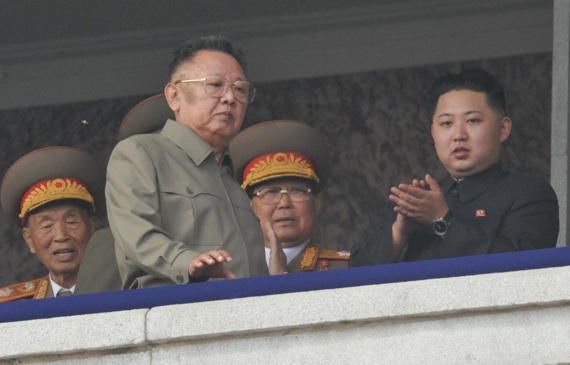North Korea “Backs Off”?
More on:

So, the New York Times says that North Korea’s failure to respond to yesterday’s South Korean live-fire drills “could signal [a] new policy”—namely, that Pyongyang, to quote a South Korean analyst cited in the article, may be “trying to create the mood for dialogue.”
We’ll see. But, sorry, I just don’t buy it.
Why didn’t North Korea act after all the bluster? The fact is, North Korea often rains fiery rhetoric on the South. And conflict this time was unlikely because North Korea did not need to strike, having already achieved many of its objectives.
Three explanations, taken together, probably explain what happened yesterday: (1) Beijing, humiliated by the 23 November attack, surely used (private) channels to tell Pyongyang to knock it off. (2) Pyongyang, quite simply, did not need to respond to yesterday’s exercise, having already accomplished its objective of humiliating South Korean president Lee Myung-bak and keeping Seoul off balance. And (3) North Korea’s threats of future attack remain credible; put differently, yesterday’s non-response would in no way suggest to Seoul or Washington that Pyongyang has "gone soft."
A statement from the Supreme Command of the Korean People’s Army blustered, but, ultimately, dismissed the affair; Pyongyang, the statement claimed, "[does] not feel any need to retaliate against every" South Korean action.
The bottom line, then, remains that North Korea is prone to provocative behavior, in large part for domestic reasons, and will continue to challenge South Korea, in particular. Such provocations seem most unlikely before Chinese president Hu Jintao’s mid-January visit to Washington; on that, Beijing and Pyongyang have probably reached consensus. But, after Hu heads home, I suspect North Korea will again refocus on South Korea, judging its military to be vulnerable.
After all, unlike the events of 23 November, Seoul is better prepared for the next North Korean attack. The South Korean military has been criticized for performing poorly during the 23 November incident. So, Seoul has loosened its rules of engagement, deployed additional assets to the vicinity, and sought to bolster conventional deterrence through military displays, such as today’s live-fire exercise near Yeonpyeong island. Some in South Korea, particularly in the military, are itching for a rematch, and it’s not that hard to see why: they are determined to demonstrate (including to China) that the South will no longer be North Korea’s punching bag.
But North Korea is unlikely to be so accommodating. Pyongyang will continue to make an issue out of the Northern Limit Line (which it does not recognize) but seems more likely to preserve the element of tactical surprise by striking elsewhere, and at a time (and in a manner) of its choosing.
Indeed, this is the central dilemma facing Lee and South Korea: The South has everything to lose from a conflict, so the North benefits more from escalation.
For that reason, and despite some change in the South’s posture, I suspect this means Seoul will remain pretty risk-averse. The South will likely seek to preserve a ladder of escalation in future responses to North Korean actions. It will aim to respond proportionately; more likely, it will still respond conservatively.
Meanwhile, Washington and Seoul continue to gamble that common sense and Chinese leverage will set limits on further escalation by Pyongyang. But China’s track record of "restraining" North Korea is strikingly poor. Since 2006, despite supposed Chinese pressure, Pyongyang has tested two nuclear devices, run four missile exercises, torpedoed a South Korean corvette, and shelled a South Korean island. Indeed, China and North Korea have grown closer throughout this period, with the North feting Chinese officials and working to invest Beijing in the political succession to Kim Jong-il’s third son, Kim Jong-un.
In truth, Pyongyang shows little deference to Chinese preferences. But, as a logical result, the crisis has sharpened Chinese tensions with Washington and Seoul. Like a growing number of issues in US-China relations, this one will produce more rancor than agreement. And, for its part, Seoul remains furious at Beijing’s efforts to shield the North. Rhetoric could heat up further in the wake of Seoul’s 18 December detention of Chinese fishermen. But, unlike a similar September incident with Japan, Beijing and Seoul have every reason to deescalate. Indeed, unlike all things Japanese, South Korea does not stir the same nationalistic passions in China. Still, a bad taste will linger on both sides, further fueling mutual suspicion.
Even when it does, well, nothing, it’s extraordinary how North Korea still stirs the pot in Northeast Asia at everyone else’s expense.
More on:
 Online Store
Online Store